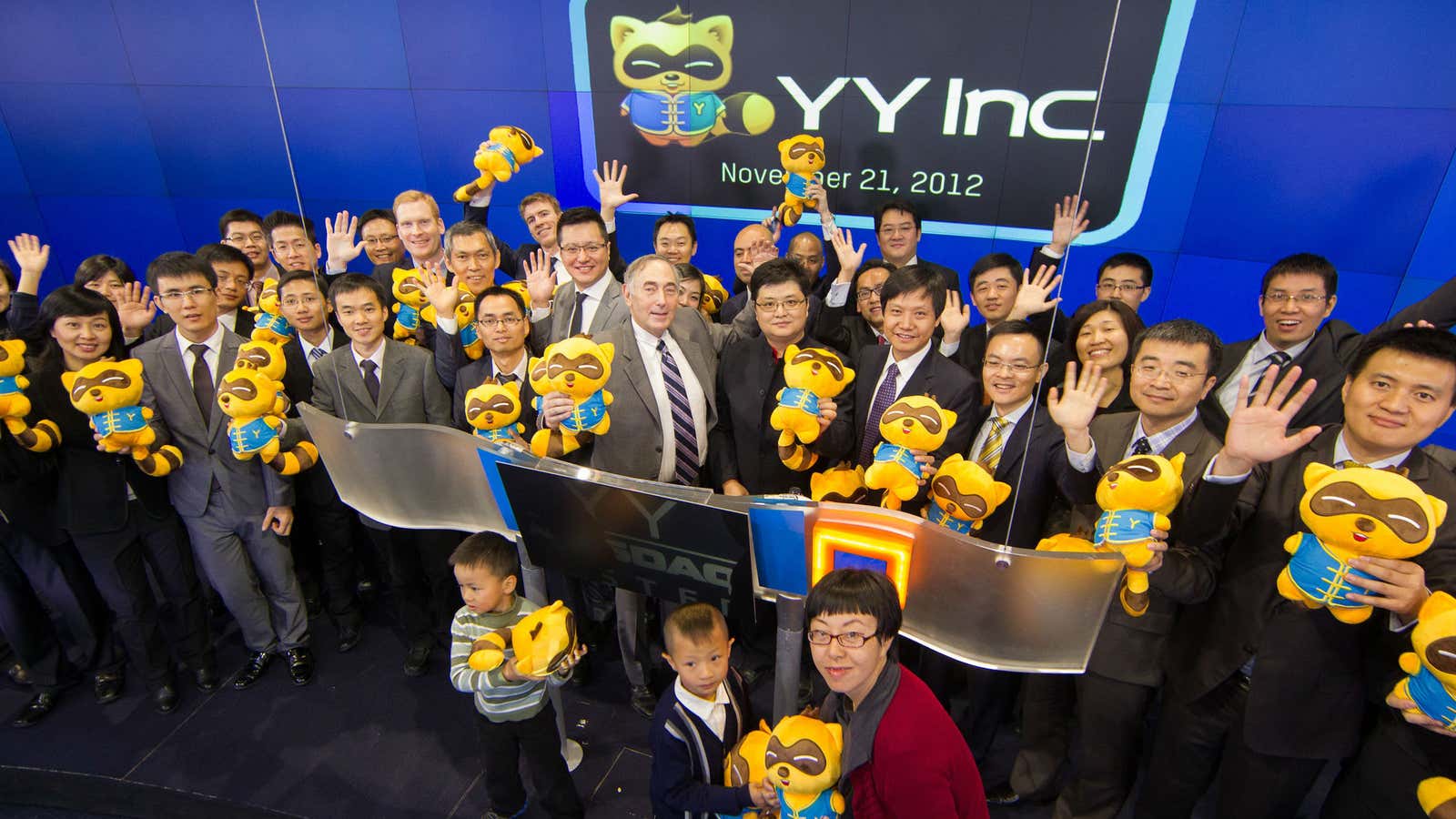Investor appetite proved healthy for China’s YY Inc., which debuted on the Nasdaq today despite a rough year for Chinese IPOs. Shares in the social media and gaming platform were up 7% at $11.31 at the close of trading. YY had priced its shares at the lower end of an earlier stated range of $10.50 to $12.50.
YY’s IPO, the first of a Chinese company in the US since April, is a test for other Chinese companies who have encountered major investor skepticism in the wake of high-profile accounting controversies. The number of Chinese IPOs in the US has gone from 41 in 2010 to 12 in 2011. In 2012 there has only been one, not counting YY’s: Vipshop Holdings, a flash sale website that raised almost 40% less than it sought. Other Chinese companies like China Auto and Shanda Cloudery had to scrap their plans for IPOs because of poor investor sentiment.
Investors have been wary of the transparency and quality of Chinese companies after a series of accounting scandals hit dozens of Chinese companies that had listed in the US through “reverse takeovers,” going public via taking over a US shell company. Chinese companies are also hesitant to list overseas and are waiting instead for signs of new policies from the country’s new leadership team announced last week. But now YY may have broken through some of that, inspiring other Chinese startups to follow in its step.
Whether shares in YY will continue to do well depends on its growth and level of transparency going forward. YY’s free online platform has 400 million registered users who talk with each other via voice, video and text. The company had net income of ¥56.0 million ($8.9 million) in the nine months ended September 30, 2012, up from a loss of ¥83.2 million in 2011, according to its prospectus. It claims to have a market share of 84% of the rather niche market of “online group voice communications in China” in terms of user time.
Concerns about YY include the fact that it only became profitable this year. From 2009 to 2011 (the company was founded in 2008), the company’s losses were ¥50 million to ¥80 million. Also, YY is dependent on its games services, where users buy tokens to play. Its games component was 42.3% of total revenue for the year through the end of September. Other major Chinese internet companies like Tencent and Qihoo also host web games. If YY’s relationship with outside game developers falters and affects its pricing or selection, the entire business will feel it. Also, the corporate structure (p.5) could eventually put off some investors. A dual stock class structure means that existing shareholders will control 98.3% of votes in YY after the IPO, leaving public investors just 1.7%.
YY itself acknowledges that its recent growth rates aren’t guaranteed going forward. “We have experienced a period of significant rapid growth and expansion that has placed… significant strain on our management and resources. We cannot assure you that this level of significant growth will be sustainable or achieved at all in the future,” the company writes in its prospectus (p. 16). Even so, the roughly $70 million in net proceeds (p. 67) going to YY from the IPO should help.
